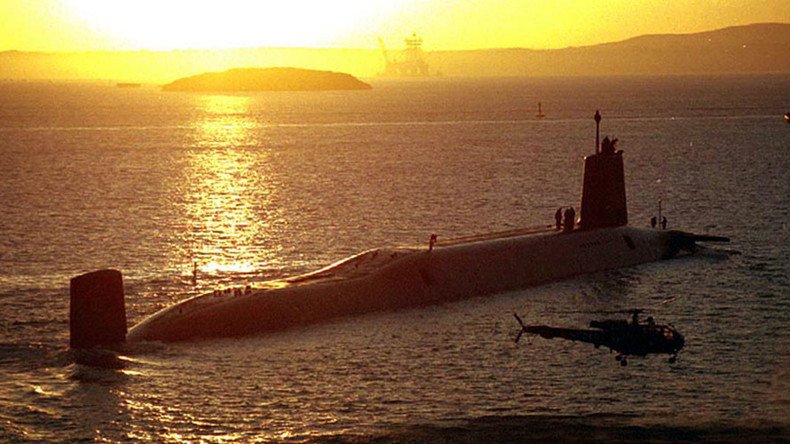Trident nuke renewal starving British Armed Forces of vital funding – ex-senior officer

No threat facing the UK is sufficient to justify the country’s nuclear arsenal and its budget should be reallocated to other areas of the military, a former senior officer aboard Britain’s last generation of submarines has said.
Commander Rob Forsyth served on British nuclear submarines in the 1960s and 1970s – including on the Polaris model which was the forerunner of today’s Trident system.
Writing for the Sustainable Security think tank’s website, he reneged on his long-held belief that nukes are a vital part of the country’s defense.
He sketched a number of reasons for his change of heart, not least the impact of funding nuclear weapons at a time when the rest of the armed forces’ equipment and personnel are sorely diminished.
“When I was at sea in the 1960s and 1970s the UK invested in both the Polaris force and significant conventional armed military forces in all three services,” Forsyth says.
In 1982 “the country was able to send a Task Force as far afield as the Falklands and, more importantly, the armed forces were strong and large enough to withstand the quite considerable attrition—particularly in the Navy—in fighting a full-on war,” he pointed out.
Today, Forsyth warned, the services have gradually become “whittled down to a level in which such a Task Force could not be assembled. By its own admission the Navy does not have enough ships and submarines to meet peacetime commitments – never mind war.”
He partially blames this on the attitudes of senior officer who allowed British troops to be dragged into two wars in Iraq and Afghanistan.
But the other major factor is budgetary, he claimed, with the cost of building four Successor submarines falling in the region of at least £31 billion (US$41 billion).
“You can buy quite a lot of aircraft carriers, frigates and hunter killer submarines for that.”
Forsyth called for a rethinking of the UK military to reflect modern threats considering “it is highly unlikely that the UK will ever come under nuclear attack from an enemy remotely susceptible to a threat of nuclear retaliation.”












